
Jian Zhao
Reporter

Reporter
Jian Zhao is a Los Angeles-based journalist for the Mandarin-language World Journal, where she has worked since Aug 2022. She has reported on critical issues such as mental health, domestic violence, illegal immigration, and social isolation among seniors through individual narratives, news reports, and reviews. Prior to her journalism career, Jian gained extensive academic and professional experiences across multiple countries, including Europe, China and other East Asian nations. In 2023, Jian's feature story on Chinese parent-child relationships received recognition as a finalist in the Mandarin Journalism Award for global media.
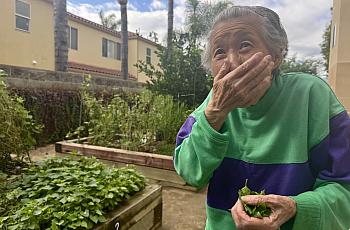
Ninety-nine year old Ronghui Ye lives in a senior housing complex subsidized by the U.S. Department of Housing and Urban Development (HUD) under the federal Section 8 program, which provides long-term rental assistance for low-income families. Residents who live in these units pay about 30% of their income in rent. Ye moved in 2000, after winning a lucky draw — a system now replaced by decades-long waiting lists.
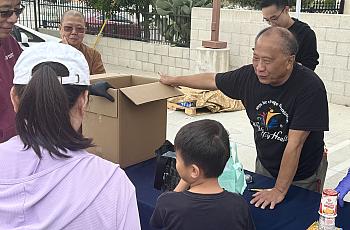
For far too many Asian families, finding enough food is a daily struggle. As prices climb and government aid wavers, more Chinese immigrant families in Los Angeles County are turning to food distributions for help. Language barriers and fears about their immigration status make this daily struggle even harder.

Store closures and displacements are reshaping Chinatown and eroding the community’s emotional and physical well-being.

商家歇業與居民流失正重塑華埠面貌,侵蝕著社區的情感連結與身心健康。
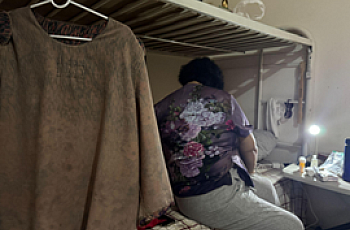
在聖蓋博谷,為尋找可負擔住房的弱勢華人移民所設的「家庭旅館」或「寄宿屋」已存在多年。
對新來者而言,這些地方往往是落腳的第一站;
對年長者而言,則可能成為人生的最後一個住所。
有些人已在同一間寄宿屋住了數十年,早已對他人難以接受的惡劣環境認命。
這些寄宿屋狹窄、危險、缺乏尊嚴,
但同時也是一張脆弱的安全網,讓許多長者免於流落街頭。
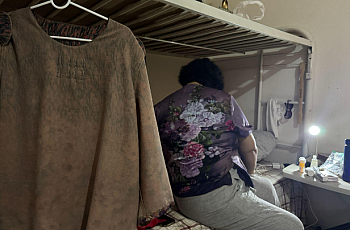
In the San Gabriel Valley, boarding houses for vulnerable Chinese immigrants in search of affordable housing have operated for years. For new arrivals, these places are often the first stop. For elders, they can become the last. Some have lived in the same rooming houses for decades, resigned to conditions others would never accept. These rooming houses are cramped, unsafe, and undignified. Yet they are also a fragile safety net, keeping many elders from ending up on the street.
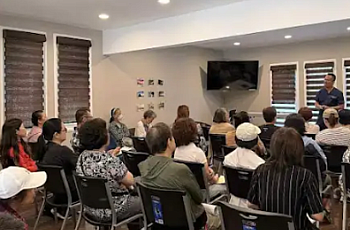
Asian American families face cultural taboos, language gaps, and limited resources in end-of-life care, but early planning and culturally sensitive support can ease the journey.

亞裔家庭在安寧與臨終照護中面臨文化禁忌、語言障礙與資源不足,凸顯及早規劃與文化敏感支持的重要性。

When both her children came out as queer, Janice Lee struggled initially to accept, but it didn’t take her long to come to terms with it. She read a lot and made the effort to learn about sexuality and gender identities. In many Asian households, changes are taking place, as parents challenge long-standing patterns of shame and silence around LGBTQ+ identity.

For many Asian immigrant women, a combination of career opportunities, immigration anxieties, and the loss of nearby family support is reshaping how and when they choose to pursue childbirth— sometimes with irreversible consequences.